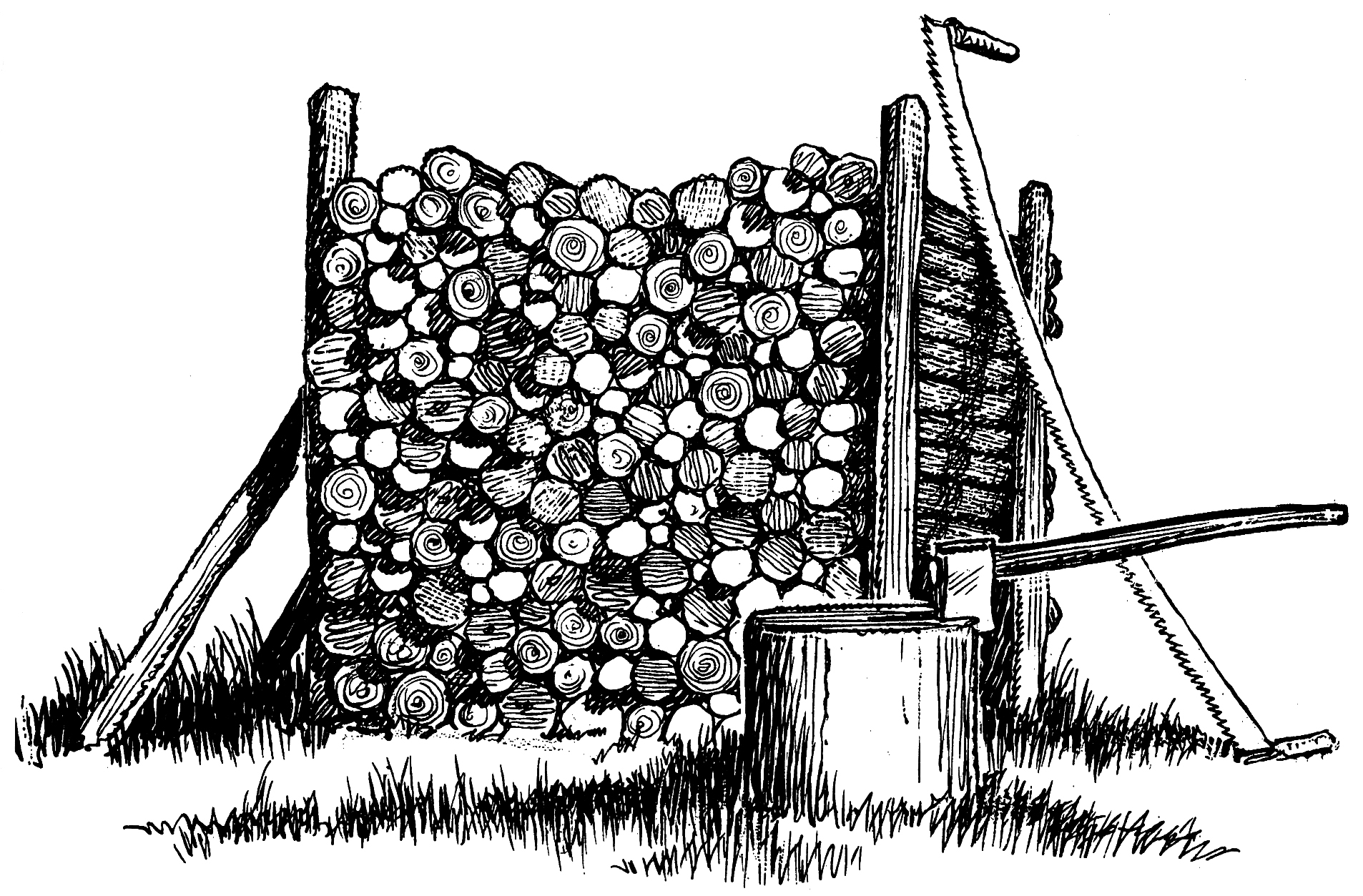Carroll Yesteryears
11 November 2012
30 Hours Without Power a Great Reminder
by Mary Ann Ashcraft
After thirty hours without electricity thanks to Superstorm Sandy, I decided that writing about life in the eighteenth or nineteenth century for “Carroll’s Yesteryears” was much nicer than living it! And I was lucky because I had a working fireplace, many gallon jugs of water, candles, and a pretty high tolerance for primitive living.
Certainly it helped to have a supply of dry wood, not just a few of those plastic-wrapped bundles from the grocery store with 5-6 puny logs, but lots of tinder and large logs scavenged here and there. Our forebears didn’t need advance warning to stock up on firewood. They used it on a daily basis, so had plenty on hand out in the woodshed. Neither would they have scurried out to get water because the hand pump over the well worked just fine, or you could send down a bucket if you had no pump. Anyway, privies didn’t require water.
Cooking in a modern fireplace did present a challenge. After another day or two without electricity, I might have gotten better at it. I wanted to make “pot-au-feu,” a fancy term for a stew that cooks night and day, with new ingredients continually added as it is consumed. We all should own a heavy iron pot which would nestle among the coals. Too bad today’s fireplaces aren’t equipped with the old-fashioned hardware which allowed you to hang a pot or slowly turn a roasting piece of meat. I found a kettle which balanced nicely on the andirons and supplied quantities of boiling water for tea. Paper plates sure came in handy and burned so quickly when it came time for cleanup!
Staying warm at night – now that was a challenge even with lots of blankets and a fireplace! I decided to ration my wood supply because I wasn’t sure if BGE had my street address at the top of its repair list. You can certainly understand why our ancestors didn’t mind sleeping several to a bed. When bedding was a precious commodity and there wasn’t much of it, more warm bodies in a bed meant a better night’s sleep. It’s not surprising that old wills frequently mentioned bedding being passed down to descendants as well as spinning wheels, a treasured piece of silver, or a pocket watch.
What to do with myself in the evening when the only sources of light were a fire and candlelight? No wonder storytelling was a much-appreciated art years ago, and singing or playing simple instruments could pass away the hours before people turned in for the night. I found myself using the telephone to keep in touch, and being so appreciative it was working even if television and the internet were not. If your ancestor could read, a year’s subscription to the local newspaper at $1.00 or $1.50 provided access to the wider world, marriages and deaths from nearby, goods for sale, poetry, health advice – something to appeal to everyone.
Thirty hours wasn’t very long, but I was beginning to smell a little “ripe.” Chanel or Ralph Lauren might have politely labeled it “Ode to Wood Smoke.”
Mary Ann Ashcraft is a library volunteer at the Historical Society of Carroll County.
Photo credit: From A Reverence for Wood by Eric Sloane

Photo caption: In his beautifully illustrated A Reverence for Wood, historian and illustrator Eric Sloane captured the importance of wood, including the well-stocked and well-stacked woodpile of a bygone era. Lucky the modern person who weathers a power outage with a woodpile like this!





